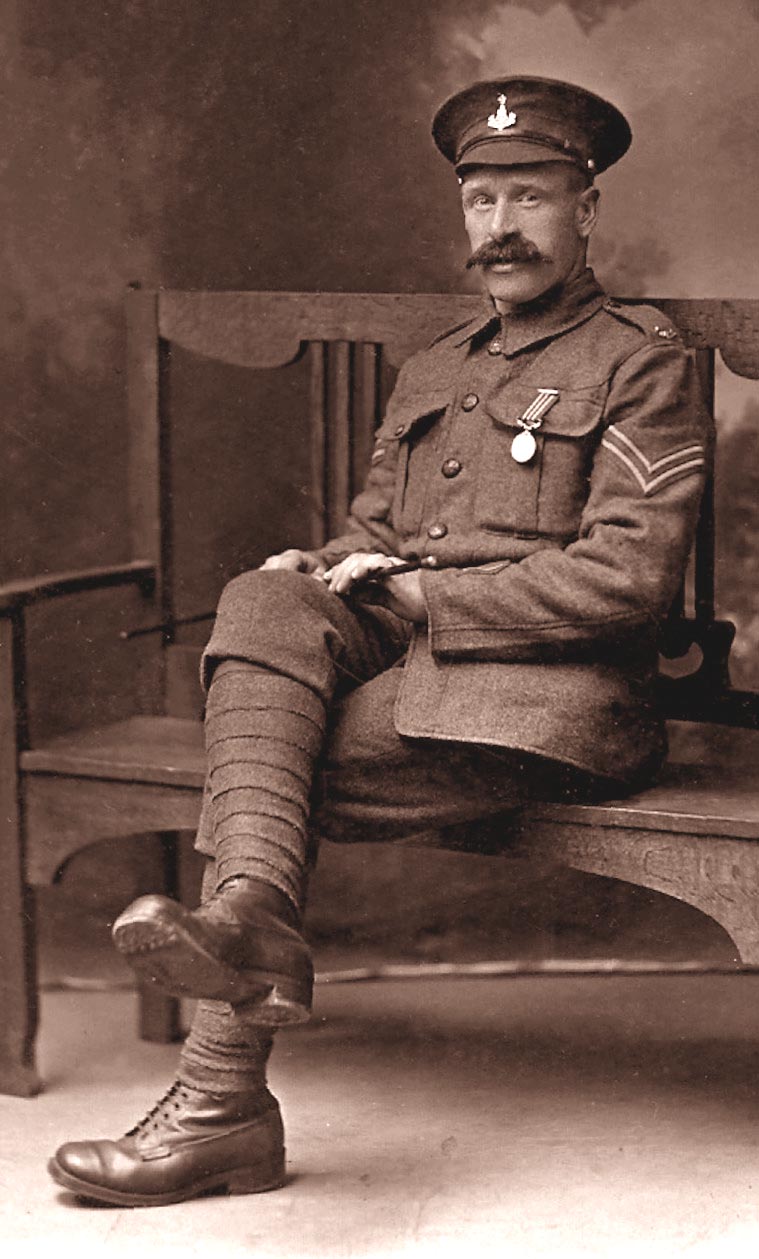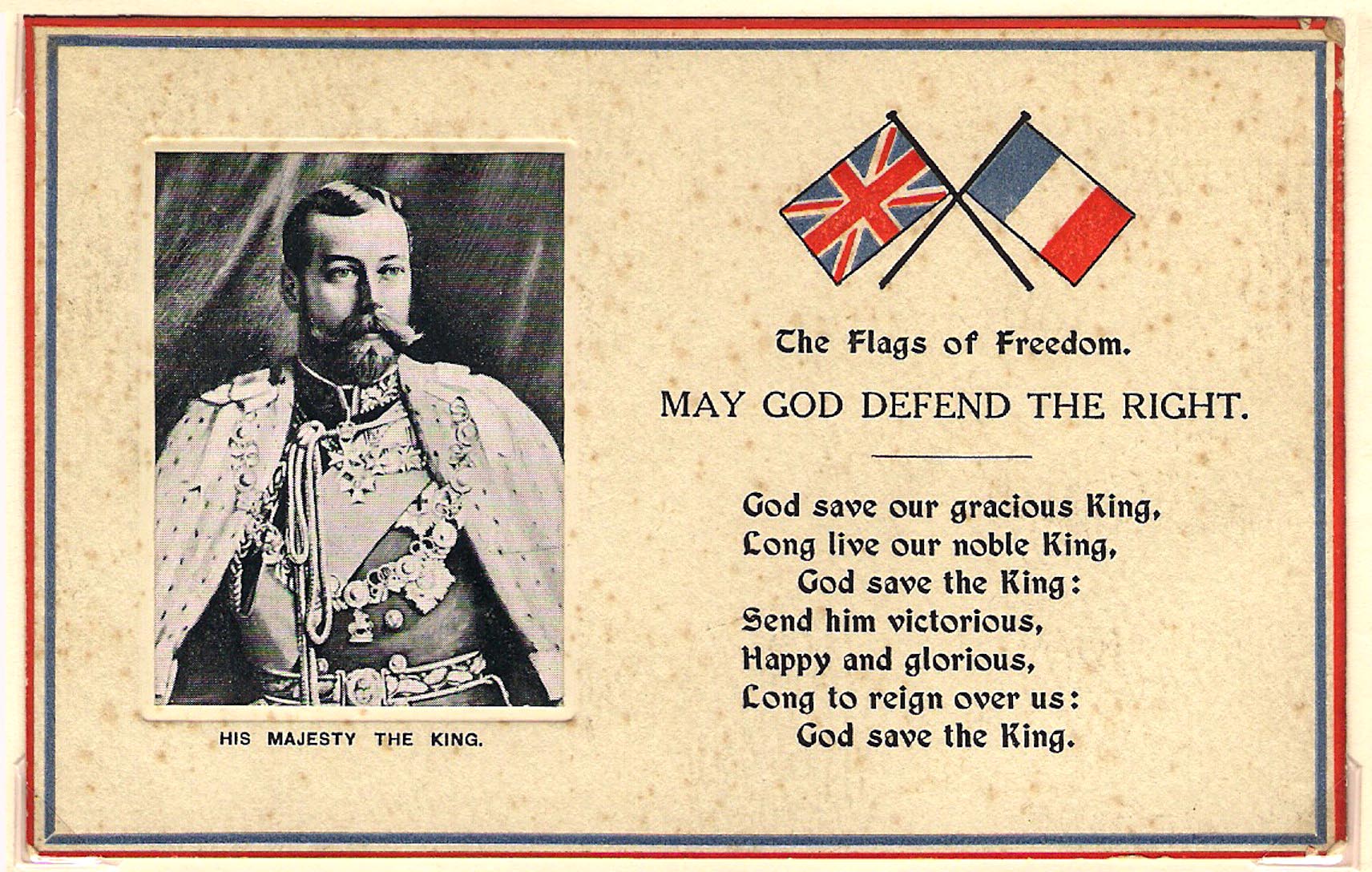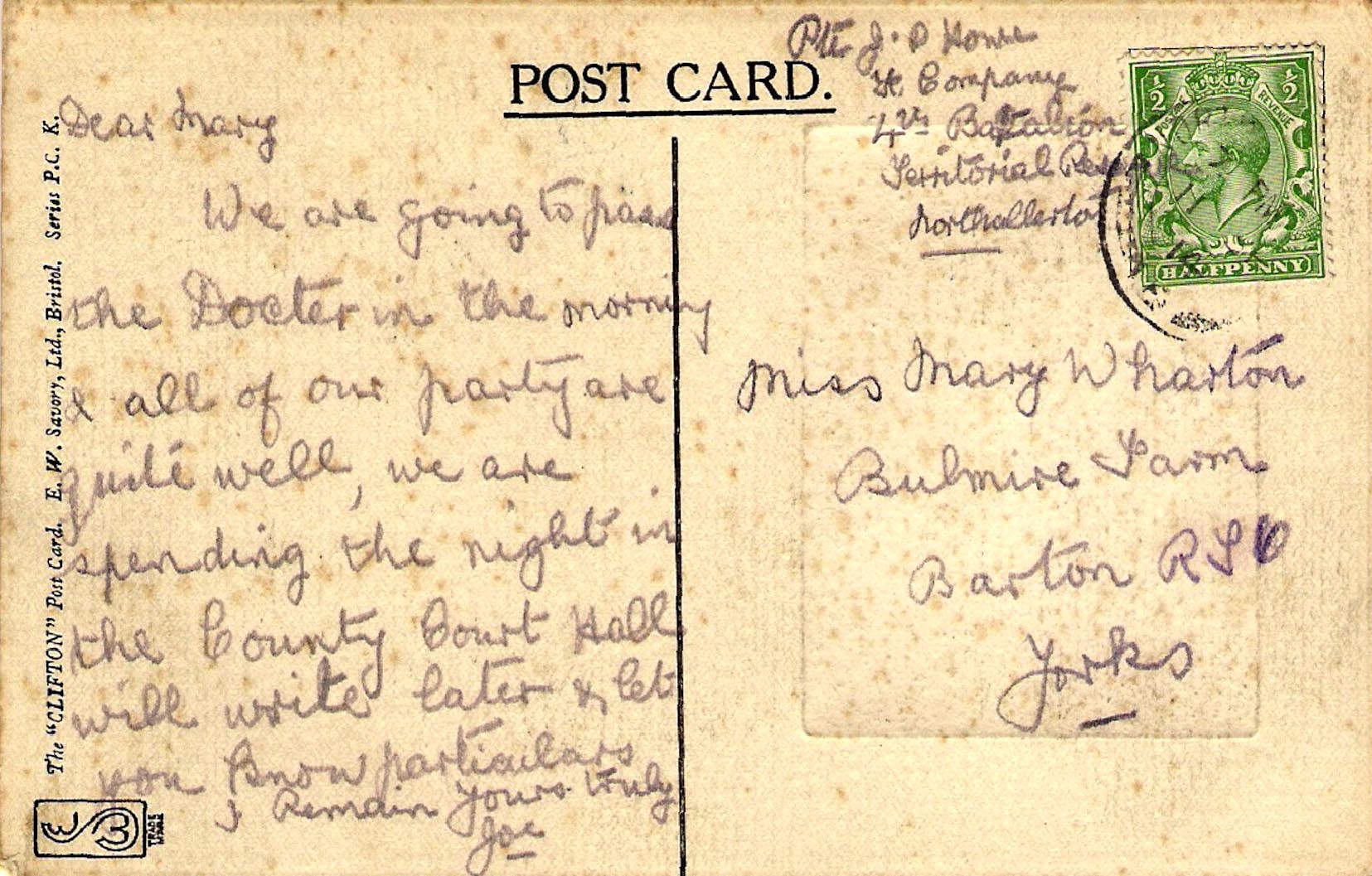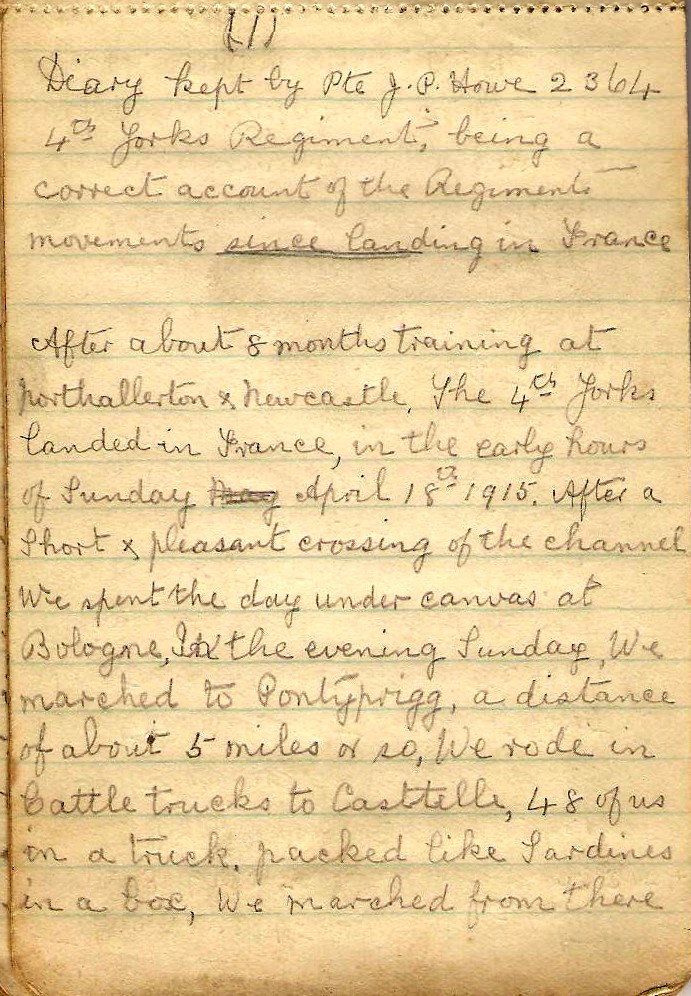|
All of the following information and images have been kindly contributed by Joseph's Grandson, Malcolm Howe of Ferryhill, Co Durham.
|
 2364 Cpl Joseph Parker Howe,
2364 Cpl Joseph Parker Howe,
wearing the Military Medal.
|
Joseph Parker Howe was born on the 10th March 1885 in the small village of Melsonby, which lies midway between the towns of Richmond and
Darlington in the North Riding of Yorkshire.
The family moved to the nearby village of Barton when he was just an infant.
He was one of ten children, which was not uncommon at that time, and had 3 brothers and
6 sisters. All were still living at the 1911 census.
His father, George, came from Westmorland and worked as a Fireman on the
Railways. His mother, Miriam, came from Stowmarket, Suffolk. Joe attended the local Barton Church of England School, but his parents were
staunch Methodists and he was a lifelong member of the local Chapel.
He worked before the War, as a stone mason and bricklayer and
was a keen footballer and cricketer.
Soon after War was declared he enlisted in the 4th Yorks on the 9th of September 1914.
His enlistment papers give his height as 5 feet 4 and a half, but as the pages of his Diary clearly show, what he lacked in stature,
he more than made up for in courage. He would be awarded the Military Medal for gallantry. His patriotism gave him an unquestioning
loyalty to the cause and his ingrained Christian principles made him a true gentlemen in his dealings with others.
The Diary begins:-
After about 8 months training at Northallerton and Newcastle, the 4th Yorks landed in France in the early hours of Sunday, April 18th
1915, after a short and pleasant crossing of the Channel.
We spent the day under canvas at Boulogne. In the evening Sunday, we marched to
Pontyprigg [Pont de Briques], a distance of about 5 miles or so. We rode in cattle trucks to Castelle [Cassel], 48 of us in a truck,
packed like sardines in a box. We marched from there to Goadsveldt [Godewaersvelde] on Monday, staying there 3 days, then we marched
3 or 4 miles or so by road, where we waited for Motor Buses, which landed us about 4 miles off trenches.
By the way, the buses we rode in were originally used in London streets, taken over by the War Office.
Then we marched to some wood huts, a few miles through Vlamantinghe [Vlamertinghe] spent about 6 hours there. Then on Friday night,
12 o'clock, we marched to about 2 miles off trenches.
Saturday [ 24 April ] morning dawned and we were in some fields, watching some of our Artillery firing. Then a German aeroplane hovering round,
was searching for guns which were hidden in hedge.
We moved from there in haste to some grass fields a bit away, but hadn't been long there, before the Germans commenced shelling us with
shrapnel.
|

|

|
Card sent from Northallerton by Joe Howe to his fiancee.
 First Page of Joe Howe's Diary.
First Page of Joe Howe's Diary.
|
Several of our Company being wounded, we moved about a bit to ploughed fields to get out of their range.
We marched same day to trenches. In action on Saturday afternoon under shrapnel and big gunfire. This was the Battle of St Julien.
It was an awful sensation. We were constantly dodging down to miss their shells, which screamed and burst above and around us. We
advanced in open order and squad rushes under awful fire from Maxim [machine] guns and Rifles. Made the Germans retreat about a mile back,
losing about 140 men in this action, this included Officers and missing.
Then we left Canadian and Irish Regiment in position we had occupied, came back to Headquarters in a wood behind trenches.
We spent the night in the open, had very little to eat and were about done up. It also rained all night and we got wet through, Officers,
some of them, shared the same discomfort.
We tasted no tea from Friday till Monday morning, using water and biscuits.
P.S. The Canadians and Irish Guards called us the Yorkshire Gurkas [Gurkhas] for the dash and daring of our attack.
It was here we lost our Adjutant.
The Canadians are worthy of our Empire's praise, for their bravery and fighting pluck in this and other trying places and I will be
remembered as well as the Canadians, I expect, in History's pages.
On Sunday morning, of all days, we went to the Reserve trenches, stayed there all day under heavy shell fire, village near us being
entirely destroyed. Got relieved 10 o'clock at night. Marched back to Headquarters. Left there 2 hours later or so to march about 4
miles back to wood huts near Vlamertinghe.
On the road through Ypres, under heavy shell fire, the town being in ruins and burning, horses and dead strewing the roads.
The next day we were shelled out of wooden huts and dug ourselves in, in open fields, returning at night to sleep in wood huts. Next day was
the same as above.
We were told by the Officers living after the action, that the General was very proud of our behaviour and complimented us all for the
part we had all played.
These notes up to Wednesday night.
We saw an aeroplane fight, nothing happened though. They are awful sharp in giving range for guns. We had to get down or out of sight -
for fear of being seen.
We expect to go to trenches tonight.
|
|



